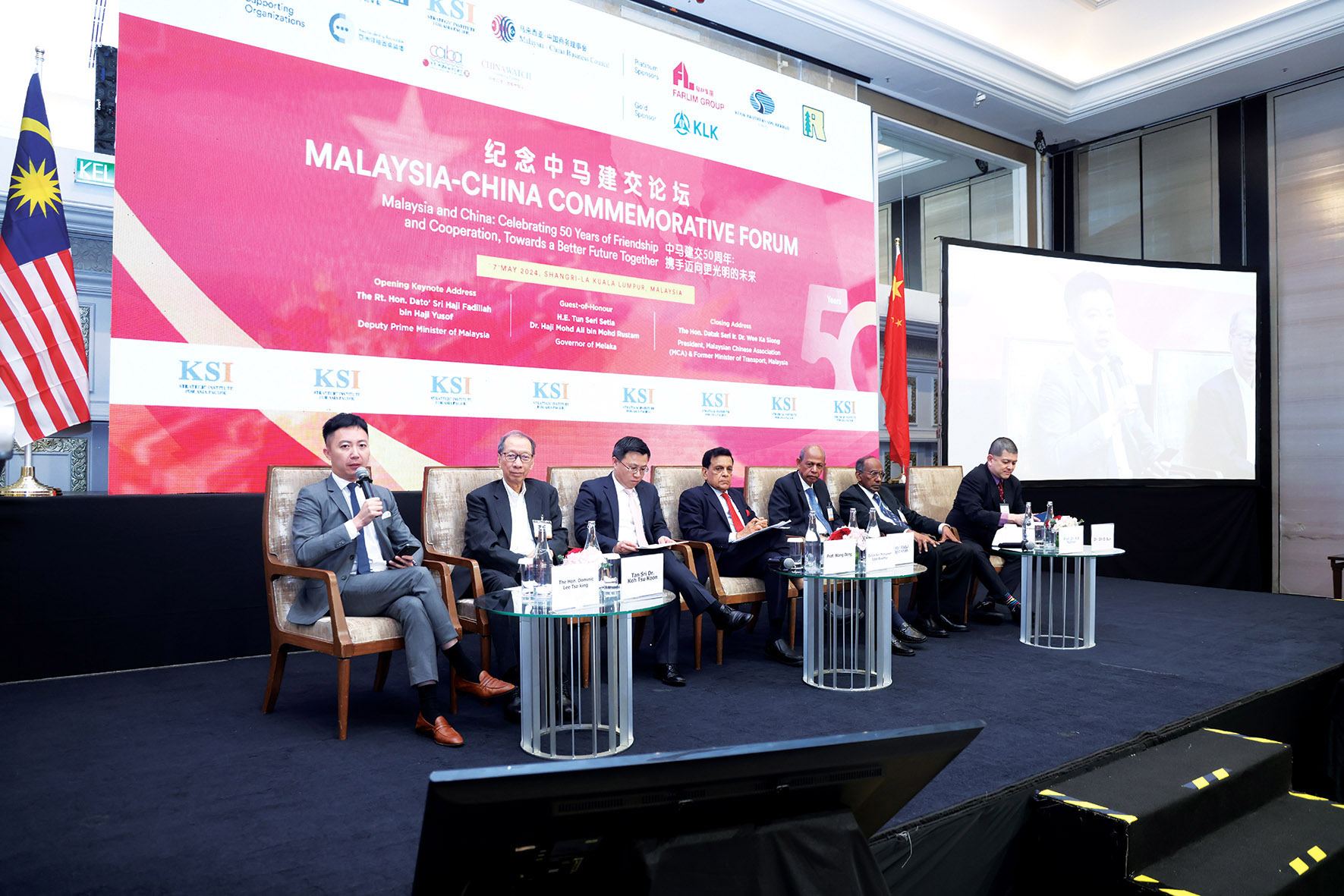Friendship projected to become more fruitful

China and Malaysia must continue their close and friendly relations for the peace and prosperity of both countries and beyond, a forum heard on Tuesday.
“The key to China-Malaysia relations should lie in the continuation of cooperation between our two sides in various fields so as to ensure the sustained, healthy, and stable development of bilateral relations,” said Wang Dong, executive director of the Institute for Global Cooperation and Understanding, and full professor with tenure at the School of International Studies at Peking University in Beijing.
From a comprehensive strategic partnership to a China-Malaysia community with a shared future, bilateral relations have grown and prospered in the areas of economics, trade, and people-to-people exchange, Wang said at a panel discussion on “Enhancing Malaysia-China Partnership Building for the Past 50 Years” at the Malaysia-China Commemorative Forum.
READ MORE: China-Malaysia ties reach new horizons of cooperation
The forum marked the 50th anniversary of the establishment of China-Malaysia diplomatic ties and the Year of China-Malaysia Friendship.
Wang said China and Malaysia share a similar view on many international and regional issues and have made positive contributions to global peace and development by jointly upholding multilateralism and promoting reform and improvement of the global governance system.
“Together, we can create a more peaceful, stable, and prosperous future for our two countries and for the world,” said Wang.
Dominic Lee Tsz-king, a member of the Legislative Council of the Hong Kong Special Administrative Region, said the city can support the China-Malaysia relationship through its strengths in financial and professional services.
The language similarities between Hong Kong and Malaysia also provide a golden opportunity for people from the two sides to work together to develop businesses, said Lee.
“The last 50 years of the relationship have been a success and full of achievements,” said Abdul Majid Ahmad Khan, Malaysia’s ambassador to China from 1998-2005.
Majid, also the president of the Malaysia-China Friendship Association, said more effective exchanges are needed in infrastructure connectivity, trade, education, tourism, and art.
Majid said Malaysia should actively participate and make good use of Chinese proposals, such as the Belt and Road Initiative, the Global Development Initiative, the Global Civilization Initiative, and the Global Security Initiative.
Malaysia and China have been strengthening their relationship in a tangible way by turning policies into projects, said Koh Tsu Koon, chairman of the board of governors at Wawasan Open University, and former chief minister of northwest Malaysia’s Penang state.
Penang became a sister city of Xiamen in South China’s Fujian province in 1993, and Koh said the agreement catalyzed business exchanges and created benefits for the local communities on both sides.
“The prospects for developing the Malaysia-China partnership are very bright,” said KS Nathan, a senior research fellow at the Asia-Europe Institute at the University of Malaya, a public university in Kuala Lumpur.
ALSO READ: Increased exchanges central to trade, regional growth
According to Nathan, the two countries should be cautious about sensitive issues, such as the South China Sea, to safeguard regional peace.
Oh Ei Sun, senior adviser of the Singapore Institute for International Affairs, said policy communication between Malaysia and China is important for economic development and avoiding the escalation of potential conflicts.
Noting that Chinese investment helps improve local employment and industrial development in Malaysia, Oh said both sides can also join hands in exploring new markets in South Asia, West Asia, and the rest of the world due to their mutual and complementary strengths.
The session was moderated by Mohamed Iqbal Rawther, deputy chairman of the KSI Strategic Institute for Asia Pacific and chairman of the Economic Club of Kuala Lumpur.


